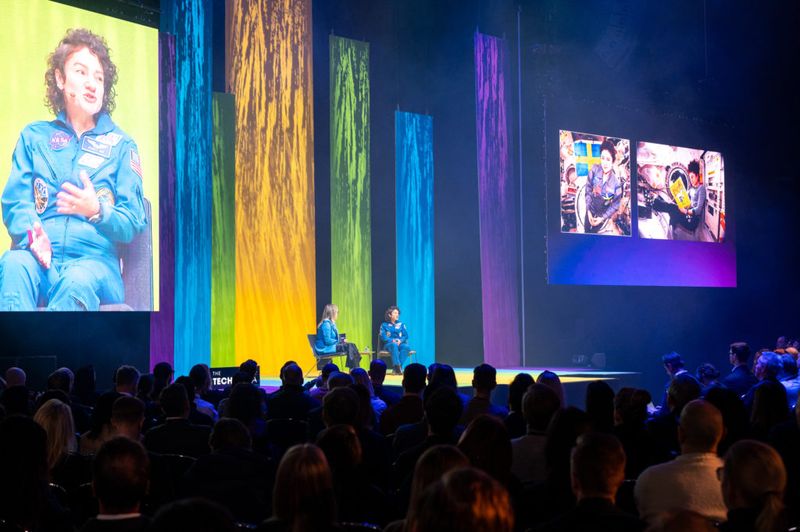On the forefront of house exploration, the Worldwide Area Station (ISS) serves as a laboratory orbiting Earth and is an emblem of what humanity can obtain when nations work collectively. A latest dialog with NASA astronaut Jessica Meir at The Tech Area 2024 stage in February sheds mild on the complexities and triumphs of life and work aboard the ISS.
Scientific discovery in house presents many challenges. Meir says that though many discoveries have come from house analysis, similar to cellphone cameras and air purifiers, many new applied sciences aren’t out there to make use of in house.
“If you discuss innovation, probably the most tough issues doing an experiment in house just isn’t the experiment itself; it’s all of the logistics of the environment,” Jessica Meir stated on stage at The Tech Area 2024.
Collaboration on the ISS
The Worldwide Area Station is a collaborative challenge between the US, Canada, Japan, Europe, and Russia, which makes all of them stakeholders within the success of the missions.
“It (ISS) was truly designed in a intelligent manner, that imposes that collaboration is required. So we’re depending on one another, which is an excellent factor for a peaceable challenge like that as a result of it actually forces it to reside on regardless of what’s occurring on the bottom.”
“Yesterday’s espresso turns into at this time’s espresso”
From a sustainability standpoint, the ISS is miles forward of life on Earth with its sustainable water recycling system. Meir defined that “85 to 90% of the water is reused, even sweat and urine, all of it’s reclaimed via the bathrooms, and we additionally acquire all of the condensation of the moisture within the surroundings.”
This method, which transforms “yesterday’s espresso into at this time’s espresso,” is a testomony to the station’s revolutionary method to sustainability. In fact, in an remoted house, it’s simpler to gather larger volumes of wastewater, however it nonetheless has potential purposes on Earth, particularly in areas combating water shortage.
Life on the Moon or Mars
Making a round way of life on the ISS is a step to doubtlessly residing in house, or on different planets. The NASA astronaut advised The Tech Area 2024 viewers that probably the most thrilling issues throughout her months in house was to efficiently develop and harvest lettuce. “It was very nice to have a recent vegetable up there,” Jessica Meir stated.
The ISS is not only a laboratory in orbit; it’s a glimpse right into a future the place the boundaries of human habitation lengthen past our planet, perhaps sooner or later we are going to all be astronauts.

